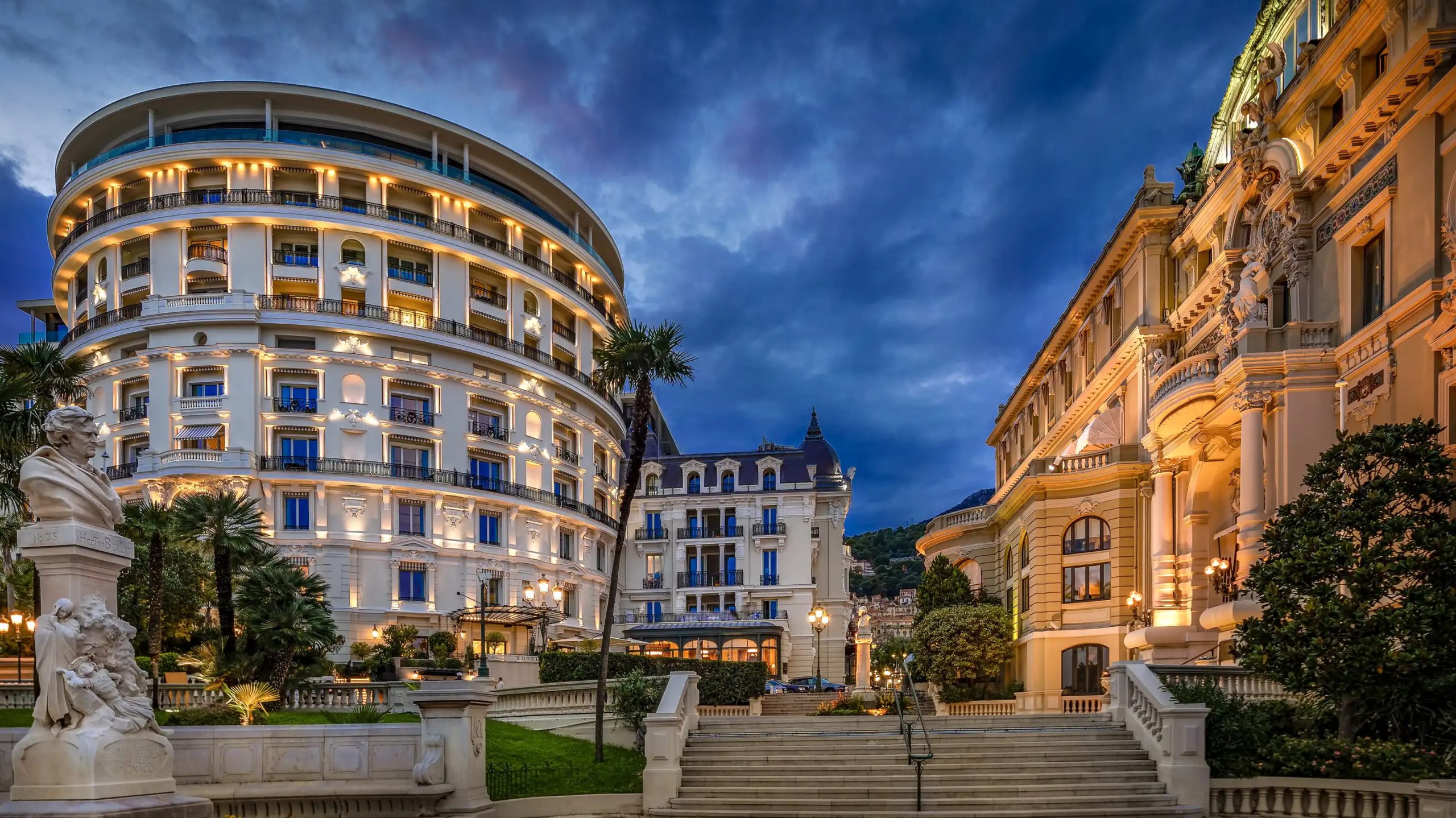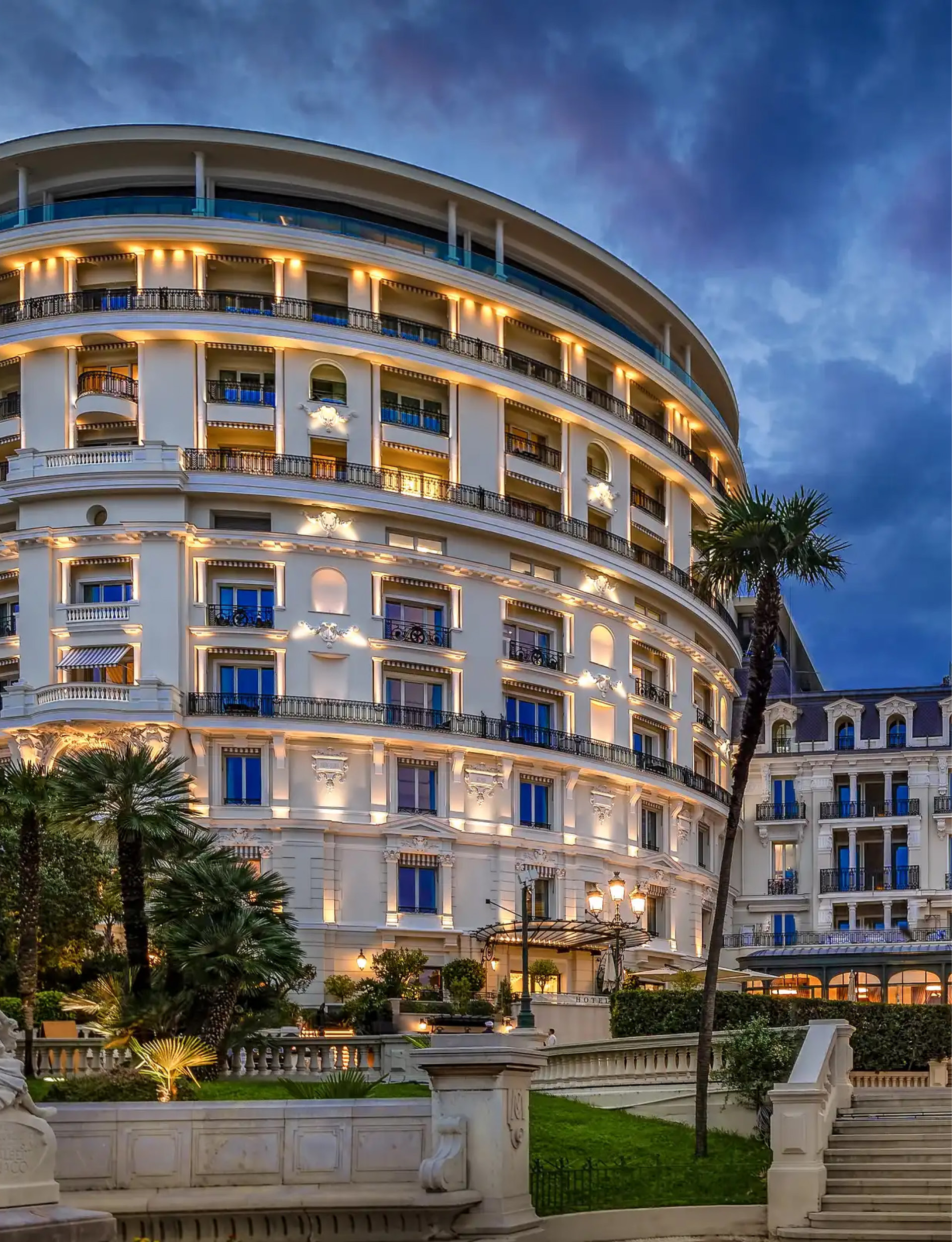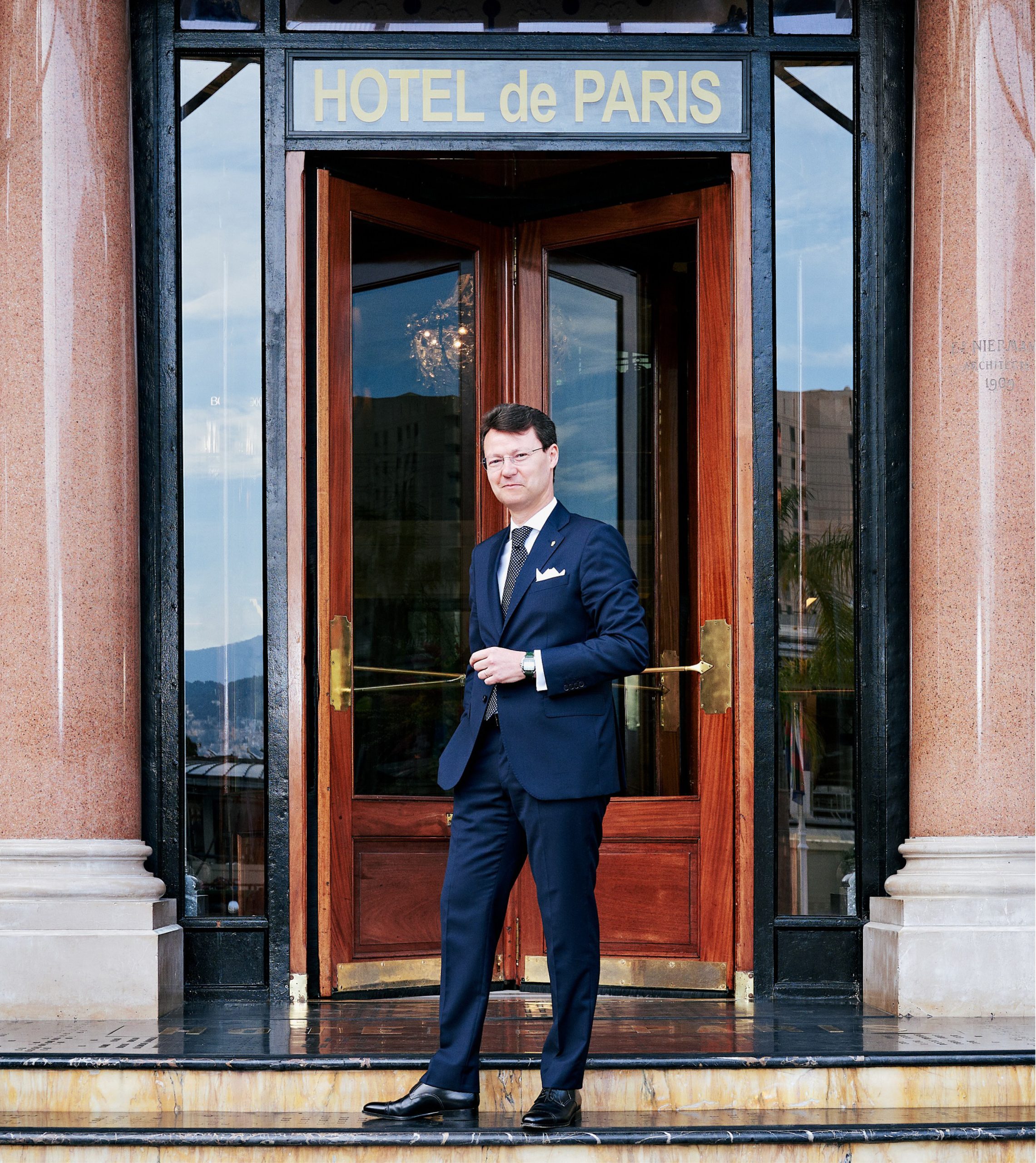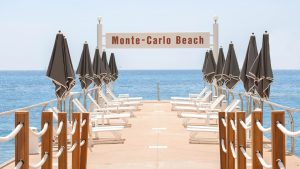


Hearing from those at the top of their game is a great way of inspiring ambitious young talents, as BBA1 students found out during the first in a new series of guest lectures.
First semester students of our Bachelor’s in International Hospitality Business are being given a taste of what hospitality can offer with the launch of a series of lectures from leading lights in the industry.
General Manager of the Hôtel de Paris Monte-Carlo in Monaco, Olivier Thomas, took time out from his busy schedule to speak to our students for the first of these sessions, during which he shared his experiences, practical knowledge and insights gathered during a long, illustrious career.
“Our new series of guest lectures is a valuable opportunity for students to bridge the gap between their academic knowledge and the realities of the business world,” says Associate Dean of Bachelor’s in Luxury Business and Practical Arts Joseph Karam. “Interaction with high-flying professionals not only allows our students to gain practical insights, it also provides them with a platform to start building their professional connections, fostering an understanding of the networking process in the business realm.”
The sessions are also designed to motivate and inspire students by opening their eyes to various career paths and show them how the decisions they make can impact their future. Having forged an impressive career, Olivier was the ideal candidate to open this series of learning events.
The world is your playground
Central to the new series of lectures is the assignment students are given to devise questions, while two classmates serve as moderators for the discussion and later collaborate on an article that reviews the conference and provides recommendations based on the guest lecturer’s insights.
“We believe it’s also an important exercise for students to coordinate and moderate a conference, specifically aiming to give them confidence in public speaking,” adds Joseph. “We are committed to enhancing their transferable skills and this experience is designed to do just that, contributing significantly to their self-assurance.”
Student Johannes Gostner got the privilege of opening the conference, giving Olivier the opportunity to introduce himself to students and give them an overview of his exciting career so far. A seasoned professional, Olivier was acutely aware of the importance of inspiration in students’ educational journeys.

“I left my country in 1985 and have never been back since then. And I think that goes to show that, while you can have a good career by staying at home, our industry offers you opportunities to consider the world as your playground. And I encourage all of you to take advantage of that and work in as many countries as you can. That’s what I did and my journey is still ongoing.”
Olivier Thomas
“I left my country in 1985 and have never been back since then,” he says. “And I think that goes to show that, while you can have a good career by staying at home, our industry offers you opportunities to consider the world as your playground. And I encourage all of you to take advantage of that and work in as many countries as you can. That’s what I did and my journey is still ongoing.”
Embracing change
In describing his career progression from graduation in 1995 and his first role in food and beverage at the Plaza Athénée hotel in New York to reaching the level of general manager, Olivier was keen to underline the importance of grasping the opportunities the industry presents and being adaptable.
“Starting out as a food and beverage assistant in a small operation meant I was offered the chance to do a little bit of everything,” he says. “Like every opportunity I had, this was a great way to start my journey. And that’s true from a technical perspective and from a human point of view, because in that role I got to work with a lot of people, which meant embracing diversity and becoming exposed to different cultures and situations you don’t usually experience as someone in your early 20s.”
It was when he moved to the Montreux Palace as Assistant Food & Beverage Director that Olivier learned one of his greatest lessons in hospitality.
“What I learned was that what many people would consider a failure may not necessarily be one. These things allow you to bounce back and make you stronger, which is what happened to me”
“After only a year at Montreux Palace, I was asked to leave because I didn’t have the right work permit,” he says. “That also happened when I was in New York. What I learned was that what many people would consider a failure may not necessarily be one. These things allow you to bounce back and make you stronger, which is what happened to me because I soon landed my first role as a Director of Food & Beverage for Starwood in Milan. It was a great professional experience for me and it was also where I met my wife.”
Insightful observations
Following his overview of the career that took him around the world in senior roles with Starwood in New York and Rome, the Savoy in London and Four Seasons in Amman, Prague, Casablanca and Abu Dhabi, Olivier provided the students with fascinating insights into a range of discussion topics they had proposed.

Perhaps unsurprisingly given Glion students’ aspirations, first among these was luxury tourism, its growth trajectory and the pros and cons of operating in the luxury sector.
“There’s been a pronounced growth in demand for luxury hospitality compared to the more general part of the sector,” he says. “And that’s down to the expanding population and the rise of the ultra-rich demographic, particularly younger individuals. Also, we’re witnessing the rise of countries not previously associated with the luxury market, such as Colombia, Mexico, Brazil and Korea. While only a tiny minority of the population in these countries are in the wealthy category, their growing affluence is contributing to luxury hospitality’s upward trajectory.”
Covering the vagaries of operating in the luxury space, Olivier pointed to the substantial investment required to enter the market and establish a luxury hotel, which gives larger operators the advantage.
“Smaller hotels face formidable challenges in gaining visibility due to intense competition from the big groups,” he says. “However, they can capitalize on their agility and ability to specialize. Offering a unique and bespoke experience can give them the edge, but this again requires significant resources.”
Guest experience

When quizzed about how luxury hotels can differentiate themselves in a competitive market and what they can do to promote loyalty among clients, Olivier was clear guest experience has to be the primary focus.
“While there is no one-size-fits-all approach, the human factor is paramount,” he says. “That is, the level of personal connection you are able to establish with your guests. You have to make them feel special and that’s what creates a profound connection with your brand. A great example is at Four Seasons, where we didn’t have a loyalty program, but we managed to build that personal relationship. And what’s critical to that is providing what the Americans call TLC: tender love and care. If you achieve that, your guests will come back. Even if you don’t have the latest generation of televisions!”
Olivier also highlighted the often-overlooked yet pivotal role of employee experience in helping create that sense of personal connection.
“If you have fulfilled employees, they will give everything they have and the results will be greater for everyone,” he says. “And your guests will notice it.”
Balancing act
Having provided insights into a range of other topics, such as technology, trends and promoting your hotel, Olivier had some sage advice for his audience around performance and leadership.
“Maintaining a healthy work-life balance is crucial for any manager and this general manager is no exception,” he says. “The key lies in avoiding being overwhelmed by responsibilities, projects and missions and stepping back, taking time and focusing on thoughtful decision making and meaningful connections.
“Life as a hotel general manager is a delicate dance between operational efficiency, personal time management and maintaining a high standard of leadership. But contrary to the belief work should dominate one’s life, it is crucial not to underestimate the importance of maintaining a healthy lifestyle. If you overlook this, it’s going to affect your performance and the consequences can be far reaching. I encourage everyone to live a healthy lifestyle from an early age, even though you have great responsibilities.”
In conclusion, Olivier shared insights from his own personal experience spanning his entire career that he believes are key to success in the industry.
“The journey requires ambition, stamina and the humility to learn from mistakes,” he says. “It’s important to find joy in the industry, because genuine passion is essential for success. Ultimately, running a hotel is a delicate balance between guest experience, employee satisfaction and profitability. In short, you need to embrace challenges, be authentic and learn from your experiences.”
Launch your career in international hospitality
Our Bachelor’s in International Hospitality Business is your first-class ticket to a global career.
















